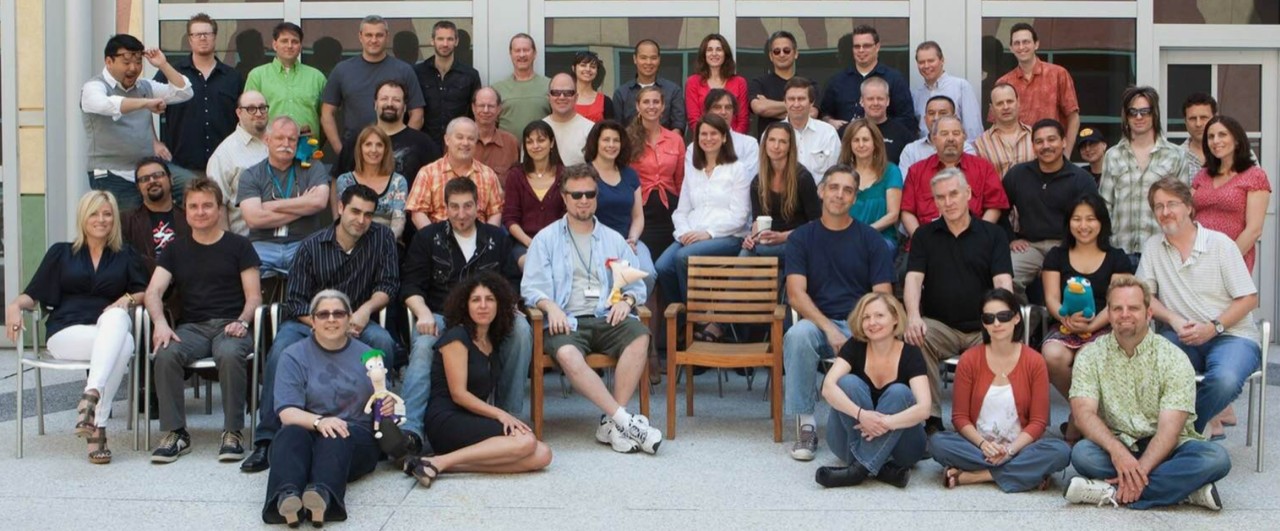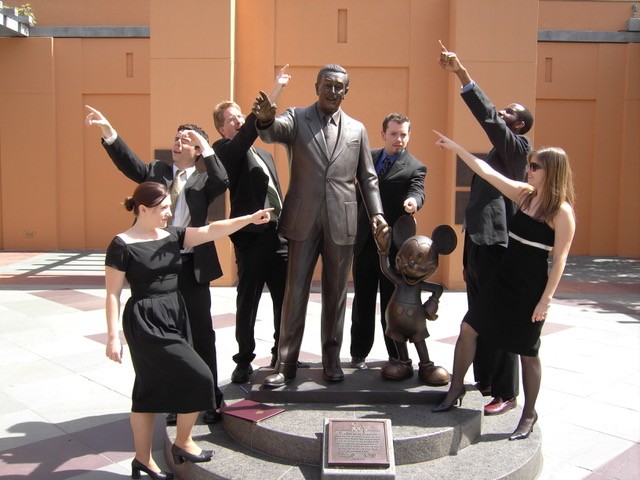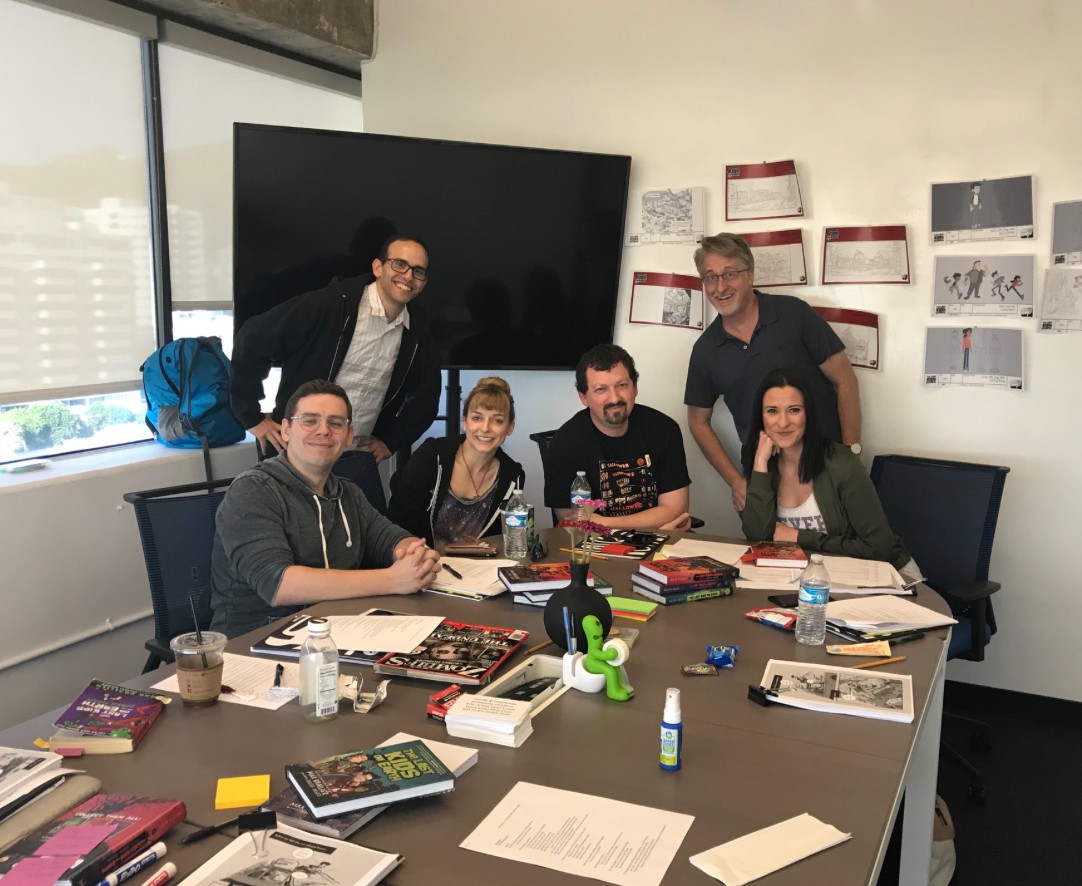We’re excited to introduce you to the always interesting and insightful Scott Peterson. We hope you’ll enjoy our conversation with Scott below.
Scott, so happy to have you with us today. You are such a creative person, but have you ever head any sort of creativity block along the way? If so, can you talk to us about how you overcame or beat it?
Oh, it has definitely happened to me and to almost every writer I know. It’s time to write episode 84 of a long-running series and you’re completely out of ideas.
You have a personal project that you’ve been wanting to write for years, but your notes are gathering dust on the shelf.
Your protagonist is hanging off the edge of a cliff over a pit of feral ostriches… with knives… on steroids… and you have no idea what comes next.
Every writer has been there at one time or another (or constantly, all the time, in a never ending spiral of shame). You get stuck trying to come up with an idea, struggling to resolve a plot complication, or even making yourself sit down in front of the computer at all. Procrastination is a cruel roommate who takes up all your time, doesn’t pay rent, and leaves their cheese-encrusted dishes in the sink.
Over the last twenty years in the business, I have faced what some folks call “writer’s block” or a “creative black hole that sucks all light, energy and creative impulse from the room.” But when you have a job that requires writing, not writing is not really an option. Or maybe you have a script you’ve been talking about for years and not finishing it is really depressing. I’ve been both places multiple times. So, I’ve been forced to come up with a few strategies that work for me. If they work for you too, fantastic! If they don’t, please don’t contact me; I’m busy trying to get back to writing.
1) When you can’t write, type.
It sounds dumb, but literally the act of typing up your notes or putting your outline into script format doesn’t take much creativity or inspiration to get started, but while you are typing, your brain starts working. You’ll add a few thoughts that weren’t in your notes or outline. You’ll think of a better way to phrase something. You’ll find a line of dialogue pops into your head and you add it to the mix.
2) When you can’t write well, write badly.
This one also sounds dumb (apparently most of the things I suggest don’t sound very inspiring) but I swear it works. Most of what holds folks back from writing is some version of perfectionism. Nobody wants to write something embarrassing and that fear can be debilitating. But if you can take that pressure away — “I’m not trying to write something perfect or even good. I’m trying to write unadulterated trash!” — it frees you up to get back to work. And yes, you’ll need to go back to do a rewrite on that god awful tripe you’ve typed up, but it is much easier to rewrite than to look at a blank page. And you may find that some decent material somehow slipped in there despite your best efforts to suck.
3) Just write for one minute. Seriously.
There’s some pithy saying about momentum and how things that are moving tend to keep moving and things at rest tend to stay at rest. And it’s true. So one of the hardest things to do is to transition from not writing to actually writing. I can find dozens of other things to do — laundry, emails, cleaning out my sock drawer, reorganizing my bookshelf by size and color — just to avoid facing whatever writing task I have. So what I do is to trick myself (I can be pretty gullible). I tell myself that I don’t have to sit down and write the entire script, or even put in an hour of work. All I have to do is the first minute. Get out my notes. Open the computer file. Type one sentence. That goal of one minute is so easy, you’ll feel like a braindead sloth if you can’t even do that much. That self-loathing will get you to act. And once you’ve done that first step, that crazy momentum thing kicks in and you do another minute. And another. You’ll look up and fifteen minutes have passed and suddenly the task of writing doesn’t seem so daunting.
4) Know that the worst thing written is better than the best thing unwritten.
You may have an amazing, blockbuster movie idea that will make you a gazillion dollars, entertain millions, and literally change the world for all eternity. But that idea is virtually useless if you can’t write it up. Unless you’re already hugely successful, nobody is going to hear your elevator pitch and say, “Sweet Mother of Satan! I want to buy those five, awkwardly phrased sentences from you. You’ve sold it in the room! Or in the elevator, as the case may be!” You can’t show people your work unless you’ve done the work. So start writing. This really is an addendum to the “write badly” suggestion. Once you have vomited your ideas onto the page and it actually IS the worst thing ever written, you can always rewrite.
5) Plagiarism is your friend.
Okay, so if you’re up against the wall and you really can’t think of anything, there is a long heralded tradition in Hollywood of stealing ideas, copying from others, and telling everyone it’s an homage. Obviously, I’m not actually suggesting plagiarism, but looking to other material for inspiration. If you’re trying to come up with that 84th episode idea, look back at some loglines from other shows that you like and ask yourself, what would my characters do if they were in that situation? Or if your favorite movie franchise is Indiana Jones, ask yourself what is it about those movies that you love and is there a way to infuse some of that into an episode of the show you’re writing? Again, I’m not suggesting you steal an old “I Love Lucy” plot and just change the names, but it’s a way to start brainstorming and break through the block to generate the seeds of an original idea.
6) Walk.
Again, I’m well aware that this sounds dumb, but literally getting up from your desk and walking around will activate different parts of your brain. The things you see and hear and feel on that walk have a lot better chance of sparking an idea than staring at your screen for another five minutes. I’m not suggesting “taking a break” or “wandering aimlessly,” but pick one or two things you are stuck on in your story, write it on a piece of paper, and then start walking. As things come to you, jot them down, without judging them. It’s just a brain spill onto the paper. In that moment, you will no longer be trying to “solve” the entire script, but can freely spitball on that one little problem, coming up with insane possibilities that may not work at first, but should give you the inspiration for something that can.
I’m sure there are more ideas I could come up with, but I’ve kind of hit a wall and can’t think of any and my sock drawer isn’t going to organize itself.
Let’s take a small detour – maybe you can share a bit about yourself before we dive back into some of the other questions we had for you?
I have worked in television animation for twenty long years as a writer, a story editor, and a producer. I’m currently running a writing room at Disney for the return of “Phineas and Ferb.” Yes, it’s coming back! It’s an amazing group of talented writers and we’ve got the freedom to come up with really weird ideas, absurd stories, and twisted jokes that surprisingly actually make it into the show.
Before this latest Disney stint, I was executive producer and showrunner on the Netflix series, “The Last Kids on Earth,” working with the fantastic folks at Atomic Cartoons and receiving an Emmy for Outstanding Special Class Animated Program.
I’ve also been nominated for writing Emmys three other times on shows including “Milo Murphy’s Law,” “Kick Buttowski,” “The Replacements,” “Emperor’s New School,” “Monster High,” “Brandy and Mr. Whiskers,” “Danny Phantom,” “The X’s,” “Robotboy,” “Tutenstein,” “Pet Aliens,” “My Life as a Teenage Robot,” and “The Sylvester and Tweety Mysteries.”
If you don’t own a TV and prefer to read words on paper, I’ve also written a few books that I’m quite proud of, including a middle grade adventure comedy novel “Shipwreckers,” a horribly inappropriate book of short stories entitled “The Diary of Anne Frankenstein,” and a whole host of original Phineas and Ferb books for kids.
Or if you prefer looking at things online, my website flagrantproductions.net lists my professional accomplishments and my other website theflagrant.weebly.com is a compilation of unusual comedy stories, articles, comics, and videos that display my unusual sense of humor.
If you google me, you might want to try Scott D. Peterson. Without the “D” you’ll find that most of the “Scott Peterson” links online are for a guy who murdered his wife and unborn child. I’m not that Scott Peterson.
There is so much advice out there about all the different skills and qualities folks need to develop in order to succeed in today’s highly competitive environment and often it can feel overwhelming. So, if we had to break it down to just the three that matter most, which three skills or qualities would you focus on?
If I’m forced to pick three qualities or skills that are most helpful to success in this field, I’d pick these:
Persistence
The most reliable way to get a foot in the door in this industry is persistence. It took me five years of cold calling, sending resumes, and mailing out sample scripts until I got my first on staff job. I had three binders full of companies and people that I tried to keep up with during those years, to make sure I stayed on everyone’s radar. What many people call “good luck” or “overnight successes” are the result of years of unseen persistence.
Confidence
I know a lot of highly talented people who don’t have enough confidence to showcase their talent. I also know a lot of mildly talented people who put themselves out there and make things happen. In a competitive industry, confidence is key, and in a career that is 90% rejection, confidence is essential.
Being a Human Freaking Being
Yes, talent is important. Yes, having great writing samples is necessary. Yes, you need to be responsible and get your work done on time and all that. But first and foremost, you. have to be a person that people want to spend 40 or more hours a week with for months or even years. Consideration, compassion, politeness, respect, checking egos at the door… all of these are part of being a human rather than an office abomination.
All the wisdom you’ve shared today is sincerely appreciated. Before we go, can you tell us about the main challenge you are currently facing?
Writing can be very personal and writers often put a lot of themselves into their work and feel passionately about it. But unless you’re alone in a room writing a novel, there are a lot of other people who are going to adjust, modify, and generally wreak havoc on your work. In television animation, every step of the process involves changing and evolving what starts out as a script. So for me, perhaps the biggest challenge I face is how invested to be in what I have written.
It’s very easy to become protective of something you have spent a lot of time on and that you are proud of, so when that is changed of taken away, it can be difficult to let it go. Knowing when to fight for an idea and when to agree to a change isn’t always easy. When I get frustrated that something I’ve worked hard on is being “watered down” or substantially reworked, I have to remind myself that we are making cartoons for kids. I’m not performing open heart surgery here. Yes, I want to help make the best show I can, but nobody’s life is hanging in the balance. Sometimes taking a step back helps to see the bigger picture.
But take that line of thinking too far and it’s tempting to disengage. Trying to protect yourself by telling yourself it doesn’t matter is a slippery slope. Yes, you need to let certain jokes or character moments go without feeling as if someone has killed your baby, but separating yourself too much can lead to a disconnecting from the material.
So, to me, the challenge is finding that balance between an attachment and dedication to what you’ve written and the ability to let things go that are out of your control.
Contact Info:
- Website: www.flagrantproductions.net
- Instagram: scott.peterson.52493
- Facebook: writerscottpeterson
- Linkedin: linkedin.com/in/scott-peterson-b9209684
- Twitter: @scottdpp31











